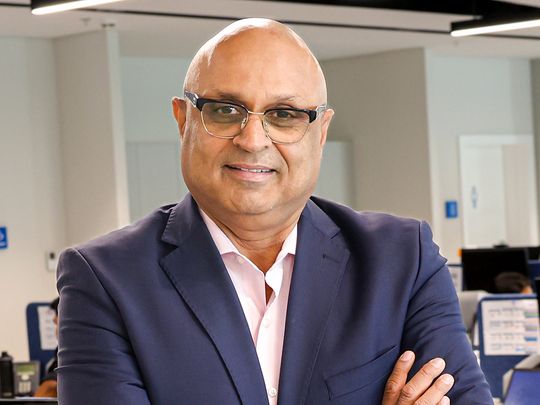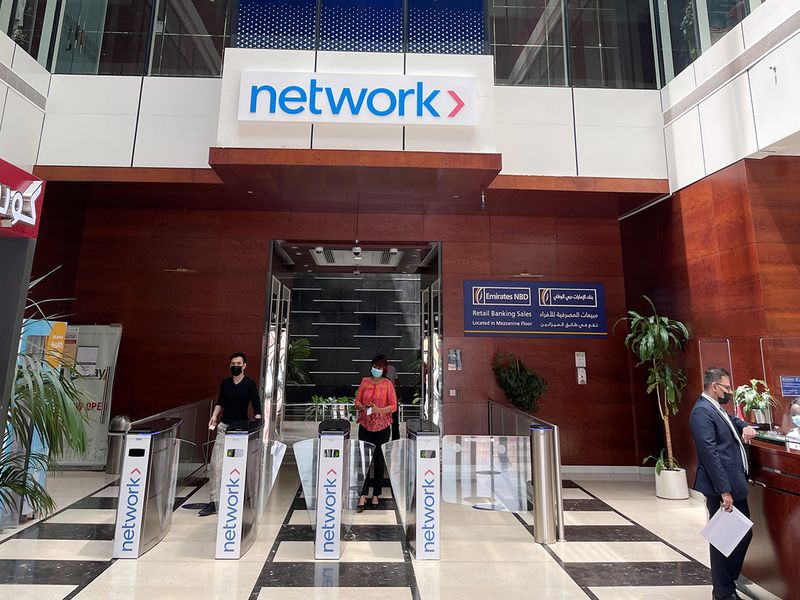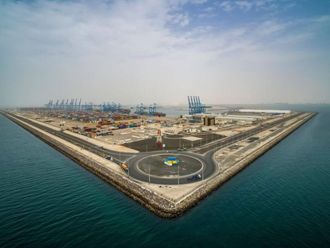
Dubai: Nandan Mer doesn’t believe in leaving too much pending work in his in-tray. However onerous those to-do tasks might be for the CEO of Network International, the Dubai headquartered payments processing company.
Work to integrate the UAE’s new ‘Jaywan’ payment scheme with banks' ATMs and merchants’ point-of-sale terminals? That’s more or less done as far as Network International is concerned. (Jaywan is the debit card scheme launched by Al Etihad Payments, part of the Central Bank of the UAE.)
Build on the company’s recent entry into Saudi Arabia, a critical market to be in for Network International’s short-to-medium term prospects? That’s getting done too.
A lot is definitely happening for and at Network International, not least being its acquisition by the Canadian fund manager Brookfield.
Is your company’s role in the rollout of Jaywan done?
We were first off the block in terms of getting Jaywan certified at our point-of-sale and online services for merchants. And that rollout is now in full earnest and we expect that that rollout of acceptance will be completed before the end of August. So, we're really, really pleased with the progress we're making there.
We are also at least the first - if not the only - processor to be certified to issue Jaywan cards. (Payment) acceptance only comes to life if issuance comes to life. So we already have 26 banks and telcos that we serve here in the UAE. And we're ready for all our bank, fintech and telco customers to start issuing Jaywan cards whenever they believe is the right time for them to start.
We applaud the creation and advent of Jaywan, UAE's domestic payment scheme. Of course, it's starting with solutions and debit solutions. Every journey has to start somewhere and prepaid and debit are absolutely the right places to start because that gives you the maximum reach from a consumer standpoint in any economy.
Prepaid and debit tend to be the highest volume of digital payment purchases in aggregate.
And the pre-launch testing of the new platform is done?
That's done. As you can imagine, it's a very robust process, because it involves money movement from Point A to Point B and the exchange of value. Like in any other exchange of value, you have to get this right every time in nanoseconds, securely, safely, and at speed and at scale.
So all that testing has taken place. And we're live in the market, both from an acquiring or an acceptance perspective as well as from an issuance perspective.

Did Network International have to do a major tweak to your existing payment platforms to accommodate Jaywan?
It's a bit of both, so customization is always a part of every new launch done at scale. There are always protocols, - data exchange protocols, information exchange protocols, settlement protocols. All that has to be customized to the local scheme.
Given that we are already in the business of accepting over 50 schemes from around the world - Mastercard, Visa, American Express, Union Pay, WeChat Pay, Alipay - this was a relatively simple task for us.
Coming to your company specifically, how far have you got in Saudi Arabia?
For us, everything that we do is digital. We do not handle cash, we only do digital transaction processing. This year, we will process about 3 billion transactions across our markets and we will cross $100 billion in process volume. -100 per cent of that is digital.
It is our belief that digital payments for consumers now exceeds 50 per cent of total transactions conducted by consumers in terms of volume, both in the UAE and Saudi Arabia.
We are in 50 markets and Saudi Arabia is our 50th. Saudi Arabia is in a pretty good place from a digital payment acceptance standpoint. I don't think there are many markets in the world that can claim to have the penetration of digital acceptance that Saudi Arabia has. So that's a great starting point.
So the role that we play in Saudi Arabia is to help banks, fintechs and telcos issue digital credentials. We're on the issuance side in Saudi Arabia and have over 10 big customers today in Saudi Arabia. Our customer list includes some of the largest Saudi Arabian banks as well as some of the fastest growing fintechs.
Are you applying for the processing license as well?
Processing does not require a license - what it requires is for the technology to be operational on Saudi soil, which is what we've done. We implemented our technology architecture called Network One, which operates in the UAE. We have repurposed that for Saudi Arabia based on rules and regulations there.
Data residency, data processing are all done in Saudi Arabia. And we have a full Saudi team that's based in Riyadh. So the infrastructure is there, the office is there, the people are there, our customers are local customers and we process for these local customers.
We issue credentials that could be physical cards, or it could be a virtual card or a tokenized card in an application. It doesn't have to be a physical piece of plastic. Our business has grown nicely in the last two months.
We are the first foreign company to receive an acquiring license in Saudi Arabia and we are on the cusp of launching our acquiring business in Saudi Arabia.
With your Saudi expansion plans speeding up, are you more or less covered on the expansion side?
I'll say the runway for growth in Middle East and Africa is so much more. Cash is still by far the dominant exchange-of-value mechanism in Middle East and Africa. We talked about the UAE and Saudi Arabia at one end – with digital payments being more than 50 per cent.
It's not the case in the other markets. There's another 60 or 65 markets in Middle East and Africa and the average of digital payment usage is low single digits. The opportunity for growth for us in Middle East and Africa is still immense.












